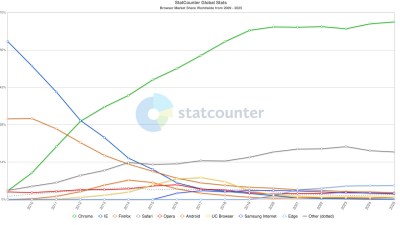- Home
- Categories
- Uncategorized
- Attacco ransomware a Poltronesofà: il rischio è l’esposizione di dati personali
Attacco ransomware a Poltronesofà: il rischio è l’esposizione di dati personali
-
Attacco ransomware a Poltronesofà: il rischio è l’esposizione di dati personali
@informatica
Al momento non c'è alcuna rivendicazione, ma l'attacco ransomware subito da Poltronesofà rappresenta un caso emblematico della minaccia persistente che colpisce il tessuto imprenditoriale italiano. Ecco cosa rischiano le persone coinvolte
L'articolo Attacco
Gli ultimi otto messaggi ricevuti dalla Federazione
-
-
Cisco has announced Resilient Infrastructure, a project to improve the security of its products.
This includes:
-increase default protections
-remove legacy insecure features
-reduce the attack surface
-enable better detection and responsehttps://blogs.cisco.com/news/doubling-down-on-resilient-infrastructure
-
Comunque con le condizioni di detenzione che abbiamo nelle carceri italiane devo dirti che la differenza morale tra chi rapisce e chi incarcera mi sembra sempre più sottile.
-
You can install extra packages for FreeBSD by using the ports system.
If you have installed it, you can download, compile, and install software by
just typing# cd /usr/ports/<category>/<portname>
# make install && make cleanas root. The ports infrastructure will download the software, change it so
it works on FreeBSD, compile it, install it, register the installation so it
will be possible to automatically uninstall it, and clean out the temporary
working space it used. You can remove an installed port you decide you do not
want after all by typing# cd /usr/ports/<category>/<portname>
# make deinstallas root.
-
@danielcuello io in realtà sono molto piú contento qui, ho conosciuto gente che sul TW non avrei mai avuto occasione di conoscere
-
So Long, Firefox, Part One
It’s likely that Hackaday readers have among them a greater than average number of people who can name one special thing they did on September 23rd, 2002. On that day a new web browser was released, Phoenix version 0.1, and it was a lightweight browser-only derivative of the hugely bloated Mozilla suite. Renamed a few times to become Firefox, it rose to challenge the once-mighty Microsoft Internet Explorer, only to in turn be overtaken by Google’s Chrome.
Now in 2025 it’s a minority browser with an estimated market share just over 2%, and it’s safe to say that Mozilla’s take on AI and the use of advertising data has put them at odds with many of us who’ve kept the faith since that September day 23 years ago. Over the last few months I’ve been actively chasing alternatives, and it’s with sadness that in November 2025, I can finally say I’m Firefox-free.
Just What Went Wrong?Browser market share, 2009 to 2025. Statcounter, CC BY-SA 3.0.
It was perhaps inevitable that Firefox would lose market share when faced with a challenger from a player with the economic muscle of Google. Chrome is everywhere, it’s the default browser in Android and ChromeOS, and when stacked up against the Internet Explorer of fifteen years or so ago it’s not difficult to see why it made for an easy switch. Chrome is good, it’s fast and responsive, it’s friendly, and the majority of end users either don’t care or don’t know enough to care that it’s Google’s way in to your data. When it first appeared, they still had the “Don’t be evil” aura to them, even if perhaps behind the warm and fuzzy feeling it had already worn away in the company itself.If Firefox were destined to become a minority player then it could still be a successful one; after all, 2% of the global browser market still represents a huge number of users whose referrals to search engines return a decent income. But the key to being a success in any business is to know your customers, and sitting in front of this particular screen it’s difficult to escape the conclusion that Mozilla have lost touch with theirs. To understand this it’s necessary for all of us to look in the mirror and think for a moment about who uses Firefox.
Somewhere, A Group Of Users Are Being IgnoredBlink, and its name will change: Phoenix version 0.1. Mozilla Foundation; Microsoft, Inc., CC BY-SA 4.0.
A quick straw poll in my hackerspace revealed a majority of Firefox users, while the same straw poll among another group of my non-hackerspace friends revealed none. The former used Firefox because of open-source vibes, while the latter used Edge or Safari because it came with their computer, or Chrome on their phone and on their desktop because of Google services. Hackaday is not a global polling organisation, but we think it’s likely that the same trend would reveal itself more widely. If you’re in the technology space you might use Firefox, but if you aren’t you may not even have heard of it in 2025. It’s difficult to see that changing any time soon, to imagine some killer feature that would make those Chrome, Safari, and Edge users care enough to switch to Firefox.To service and retain this loyal userbase then, you might imagine that Mozilla would address their needs and concerns with what made Phoenix a great first version back in 2002. A lightweight and versatile standards-compliant and open-source web browser with acceptable privacy standards, and without any other non-browser features attached to it. Just a browser, only a browser, and above all, a fast browser.
Instead, Mozilla appear to be following a course calculated to alarm rather than retain these users. Making themselves an AI-focused organisation, neglecting their once-unbeatable developer network, and trying to sneak data gathering into their products. They appear now to think of themselves as a fad-driven Valley startup rather than the custodians of a valuable open-source package, and unsurprisingly this is concerning to those of us who know something about what a browser does behind the scenes.
Why Is This Important?If you have ever had to write code like this, you will know. Bret Taylor, CC-BY 2.5.
It is likely that I am preaching to the choir here, but it’s important that there be a plurality of browsers in the world. And by that I mean not just a plurality of front-ends, but a plurality of browser engines. One of the reasons Phoenix appeared all those years ago was to challenge the dominance of Microsoft Internet Explorer, the tool by which the Redmond software company were trying to shape the online world to their tune. If you remember the browser wars of that era, you’ll have tales of incompatibilities seemingly baked in on purpose to break the chances of an open Web, and we were all poorer for it. Writing Javascript with a range of sections to deal with the quirks of different browser families is now largely a thing of the past, and for that you have the people who stuck with Firefox in the 2000s to thank.The fear is that here in 2025 we are in an analogous situation to the early 2000s, with Google replacing Microsoft. Such is the dominance of Google Chrome and the WebKit-derived Blink engine which powers it, that in effect, Google have immense power to shape the Web just as Microsoft did back in the day. Do you trust them to live up to their now-retired mission statement and not be evil? We can’t say we do. Thus Firefox’s Gecko browser engine is of crucial importance, representing as it does the only any-way serious challenger to Blink and WebKit’s near-monopoly. That it is now tied to a Mozilla leadership treating it in so cavalier a manner does not bode well for the future of the Web.
So I’ve set out my stand here, that after twenty-three years, I’m ready to abandon Firefox. It’s not a decision that has been easy, because it’s important for all of us that there be a plurality of browsers, but such is the direction being taken by Mozilla that I am not anxious to sit idly by and constantly keep an eye out for new hidden privacy and AI features to turn off with obscure checkboxes. In the following piece I’ll take a look at my hunt for alternatives, and you may be surprised by the one I eventually picked.
-
Thank you to @grunfink@comam.es for implementing one of my feature requests in #Snac .
Now if you use your web browser and you get a new follower notification when you visit the notifications page there will now be a follow button next to the notification. To get this feature you need to be running the latest from their git repo.
https://codeberg.org/grunfink/snac2/commit/d4137522487235180528281ee64b7c5963f63ebe
-
@kenobit @TeresaPotenza infatti nel mio sito è ancora in manutenzione...
Post suggeriti
-
So Long, Firefox, Part One
Watching Ignoring Scheduled Pinned Locked Moved Uncategorized 7
0 Votes1 Posts0 Views
7
0 Votes1 Posts0 Views -
Ma voi usate ancora la livella a liquido come quando Cavour girava coi calzoncini corti?
Watching Ignoring Scheduled Pinned Locked Moved Uncategorized laser 2
0 Votes4 Posts2 Views
2
0 Votes4 Posts2 Views -
Ciao, sono Cuello che disegna
Watching Ignoring Scheduled Pinned Locked Moved Uncategorized 1
0 Votes4 Posts3 Views
1
0 Votes4 Posts3 Views -
La cosa più faticosa del libro è stata scrivere la quarta di copertina.
Watching Ignoring Scheduled Pinned Locked Moved Uncategorized0 Votes6 Posts7 Views